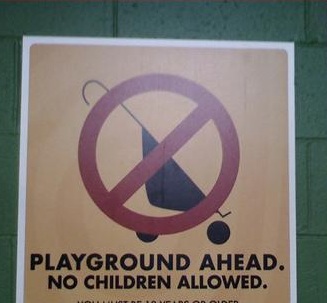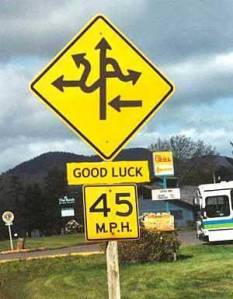
When the kiddos where swarming Jesus, his disciples started barking at the parents. They said Jesus couldn’t be bothered with that sort of thing. Jesus harshly rebuked his helpers. He had time for the kids. I can picture him ruffling their hair, smiling at them, and blessing them, as they crowded around him.
He went on to say that to come in the Kingdom of God you must be like a child. I think he was primarily speaking about “child-like trust,” and perhaps “purity” of heart, but let’s also think about the nature of children for a minute.
Most kids aren’t super serious, most of them find joy in the present, most can be fairly easily amused, most of them assume they need some help to get by. Oh, and another thing–THEY PLAY! So, maybe those of the kind of people Jesus enjoys the company of.
Have you grown up? I should say, have you gotten old? Have you forgotten how to play? How to play with all that you are-like a kid-all out? Can you shelve your crotchety outlook, and have a good time, without feeling awkward, bringing someone down, or looking at the negative?
I’ve met so many Christians who are so “grown-up,” they could meet up with God, and he’d seem more like a boy to them. In other words, they would have no idea how “youthful, innocent” exuberance looks, or sounds like. Look at the world of created things. God must have been laughing when he fashioned some of those creatures! Tough-skinned grown-ups aren’t much able to id joy, or what is joyful, if it hits them in the face with a cream pie. They’ll probably say, “Oh, thanks joy! Perfectly good pie, and YOU wasted it! Now clean this up.”
God sings, smiles, and laughs. Shocking! (Actually, only to some people.) Open your eyes. God is good. God is even fun!
Maybe we should remember that he gives us this world to enjoy. He give us others to enjoy. This world is our playground, and we may be happy here. Tag-you’re it!




